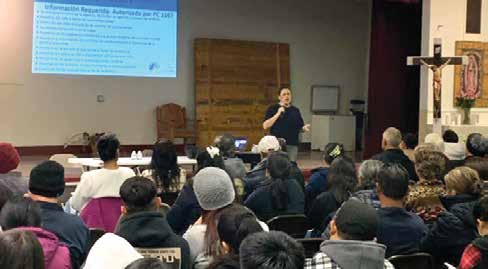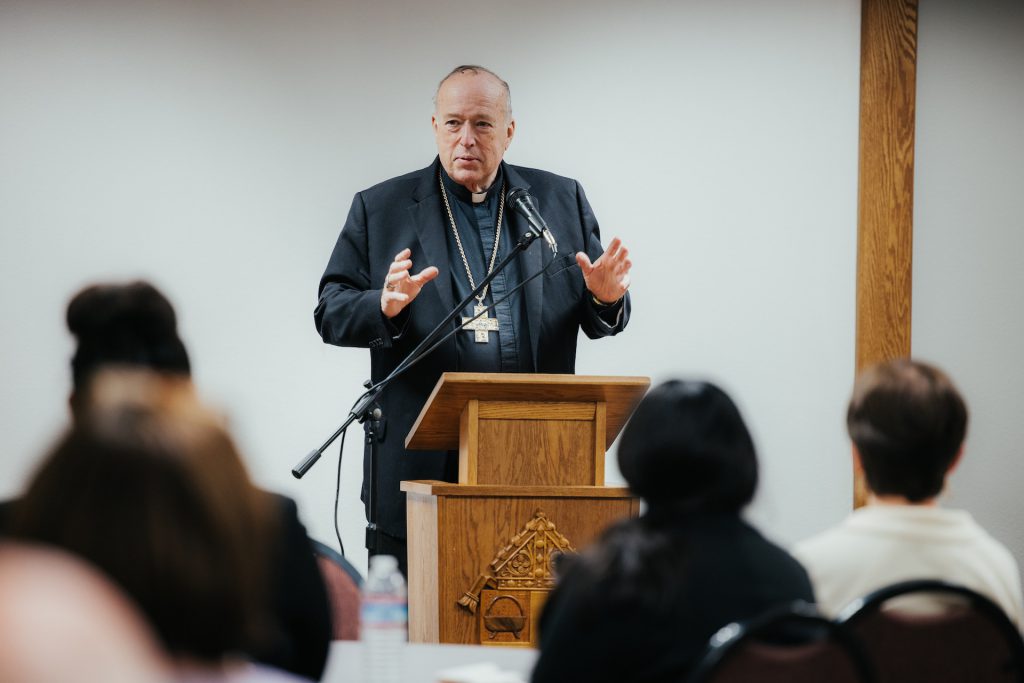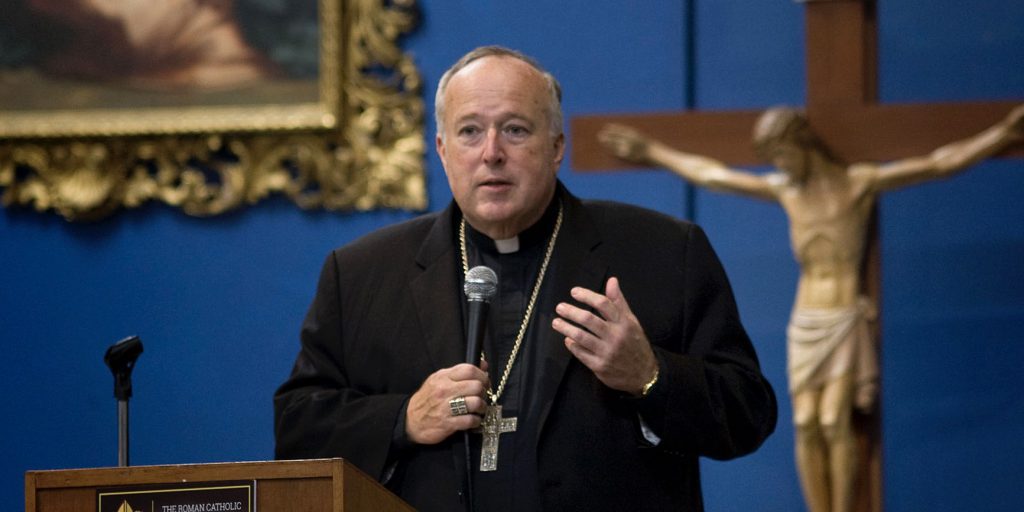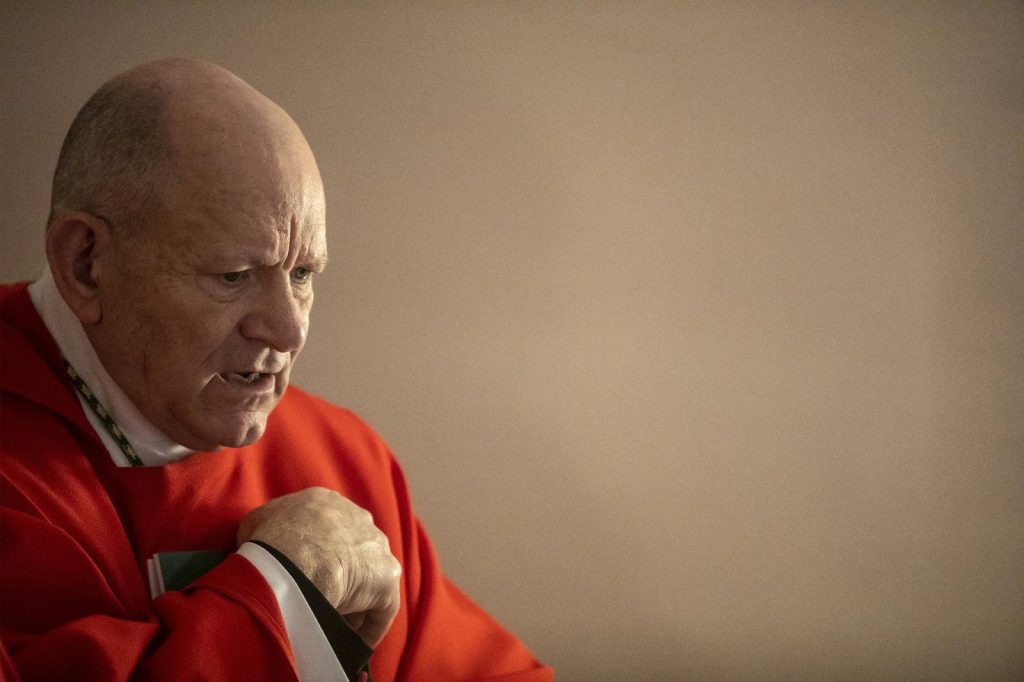SAN DIEGO — Never again.
That was the message the U.S. bishops sent when they approved the “Charter for the Protection of Children and Young People” in June of 2002.
The document, which was a response to the clergy sex abuse scandal that broke earlier that year, represented an acknowledgement that Church leaders had failed to adequately protect children. It established protocols that the bishops hoped would address harms and bring healing to victim-survivors and prevent future abuse.
Over the past two decades, those protocols have become a way of life for all U.S. dioceses, including the Diocese of San Diego.
“NO—GO—TELL” posters, which remind youth how to respond to inappropriate behavior, are now a common sight in parish halls and Catholic school classrooms. (Youth are encouraged to say “no,” leave the area immediately, and confide in a trusted adult.) But, unlike the posters, much of the work the diocese has done — and continues to do — to implement the Charter isn’t visible to the average Catholic in the pew.
Rodrigo Valdivia, who directs the diocesan Office for Child and Youth Protection, explained that the Charter focuses on three areas: preventing sexual abuse, responding to abuse allegations, and providing pastoral care to victim-survivors.
Every child enrolled in a K-12 Catholic school or parish-based religious education program receives age-appropriate “safe environment” training every year. All clergy, teachers and other employees, as well as volunteers who work with children, must complete this training and pass a background check at the start of their diocesan work and must renew them every five years.
Over the past 20 years, tens of thousands have received this training in the diocese.
“That’s something that, oftentimes, people — not only in the Church, but obviously in the general community — don’t know that we’re doing,” said Valdivia, who has been leading the diocese’s safe environment program since it was adopted 20 years ago.
The Charter also called upon each diocese to establish an independent Diocesan Review Board to assess the credibility of sexual abuse allegations made against local clergy and other Church personnel.
San Diego’s review board met for the first time in November of 2002. Among its eight members are retired individuals from the law enforcement and legal fields, a social worker, a pastor, and a victim-survivor.
To the credit of the Charter’s abuse prevention measures, Valdivia said the review board has received no reports of alleged clergy abuse taking place in the last 20 years, though it has continued to receive claims dating from the 1960s through 1980s.
In accordance with the Charter, the Diocese of San Diego has also provided pastoral care to victim-survivors. Sometimes, this means something as simple as listening to and documenting their story, but also involves offering spiritual direction, connecting them to support groups, offering a meeting with the bishop, and paying for therapy or counseling.
Mary Acosta joined the diocesan staff three years ago as the full-time Victim Assistance Coordinator and spearheads the diocesan effort to provide pastoral care and outreach to those who have suffered abuse by local clergy.
Additionally, educational seminars on child abuse are being offered at parishes, and healing opportunities, such as retreats and support groups, are being offered to local victim-survivors.
In August of 2019, Cardinal-designate Robert McElroy took the unprecedented step of bringing together the approximately 2,500 diocesan staff members at one location for a special presentation on child sex-abuse prevention that included remarks from San Diego County District Attorney Summer Stephan. This illustrated the diocese’s commitment to preventing child abuse and helping victim-survivors in the Church today.
The San Diego Diocese went beyond what is required by law or by the Charter when, in late 2019, it joined five other California (arch)dioceses to create an Independent Compensation Program to settle the claims of victim-survivors. Administered by Kenneth Feinberg and Camille Biros, the program paid almost $24 million to settle the claims of 1,977 victim-survivors statewide; this included the $7,655,000 that the San Diego Diocese paid to 59 individuals.
Like all U.S. dioceses, the Diocese of San Diego submits an annual report to the U.S. Conference of Catholic Bishops on how it is complying with the Charter. Every three years, the diocese undergoes an on-site audit. The diocese has been found to be in compliance every time.
Acosta has heard it said that, today, the U.S. Catholic Church is “the safest place in the world for children” when it comes to abuse.
“I think, because of the Charter, that is most likely very true,” she said.
Acosta added that the charter has inspired other organizations to implement similar programs to protect children.
The Diocese of San Diego maintains a webpage, Safe in Our Diocese (safeinourdiocese.org), that includes information on how to report abuse, abuse-prevention resources, and information about the Diocesan Review Board and the annual audits, and it contains a list of diocesan priests who have been credibly accused of abuse.
To report abuse, you may phone (858) 490-8353 or email misconduct@sdcatholic.org.









